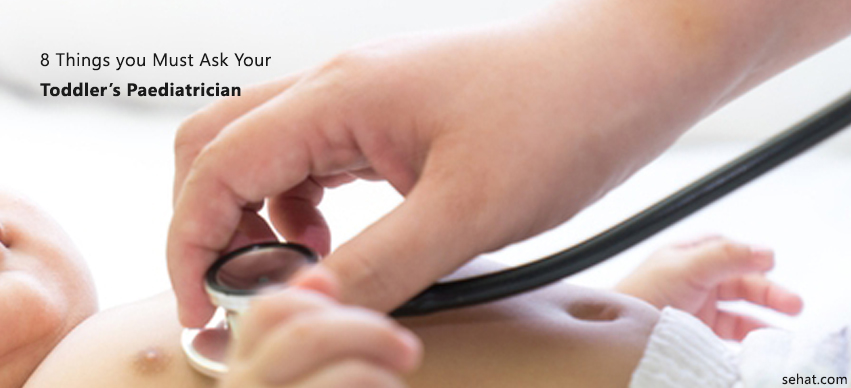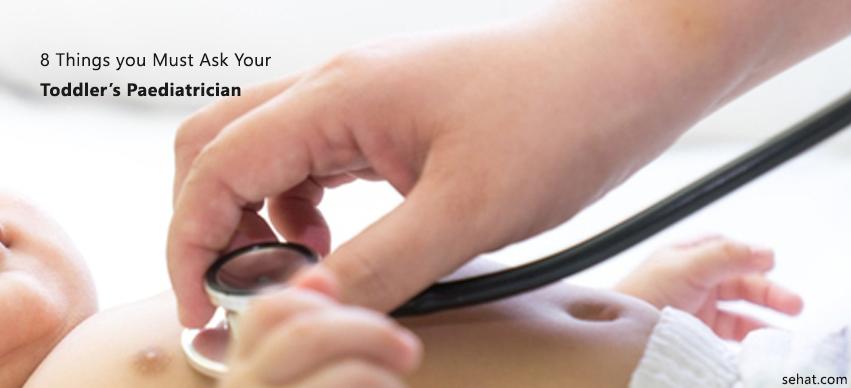Microplastics in Humans: Understanding the Risks and How to ..
8 Min Read


From the moment a baby is born, parents are overwhelmed about the health, care, concern, and worry about the baby and her growth. Is she sleeping well, eating well, growing in the right way, meeting milestones correctly, is she suffering from any diseases, and is she getting enough exercise are a few questions running on every parent's mind. Instead of crowding your mind with so many doubts, it is important that you get all the questions answered by your baby's pediatrician. During your next visit to the pediatrician, do not forget to ask these questions.
Usually, many children do not fall into a regular adult-like sleep cycle until almost 3years. Once they start schooling and get into a routine, they sleep well. Since sleep is very important for healthy brain development in babies and toddlers, it is important that your baby gets little sleep at least. Discuss with the pediatrician about sleep schedules and how much sleep the baby needs at this stage.
Plenty of toddlers do not eat well. They are more involved in playing and running around and do not pay much attention to food. Ask the doctor about making food interesting and how to manage a kid's diet to ensure she gets enough calories for all her activities.
Rolling over, crawling, grasping things, getting onto the knees, pulling up objects, and standing, walking, etc are the major milestones in a baby's life. He should meet them at the correct age. Though many babies either are fast or slow depending upon their stamina, there are a few who are very late. Talk to the pediatrician about your baby's readiness and see how good he is. This is only for an assessment to ensure your baby is growing the right way.
From 10 months on, babies should be able to blabber something and be ready to communicate verbally. By the end of 2years, they should be able to make three worded sentences and call things by their names. The doctor should be able to guide you about the talking timeline of a toddler and help you sort communications problems if your child isn't talking yet.
Babies grow their first teeth by 7 to 8 months and by the first birthday they should have at least two teeth. Some babies do not develop teeth well until their 2nd birthday. This should be discussed if your child doesn't have any teeth yet. Your pediatrician might refer your kid to a pediatric dentist to see how things will proceed.
All toddlers know that throwing a tantrum is the easiest way to grab attention and get things done. Such behavior might get worse as they grow into tiny adults. Talk to your doctor about handling these tantrums and how to do it the right way without hurting the kid.
To prevent deadly diseases and disorders in babies, a child vaccination schedule is maintained by pediatricians. It should be strictly adhered to and a single vaccine too shouldn't be missed. If you are traveling or are unavailable for the next vaccination, ask the doctor for a solution.
Children develop quite normally in healthy families. But some kids might have developmental delays and the symptoms sometimes can be silent. Gross and fine motor skills, cognitive skills and memory, communication, physical growth, and other life skills must always be monitored. It is advisable that you discuss warning signs in a child's development and how to identify the problem without delay.